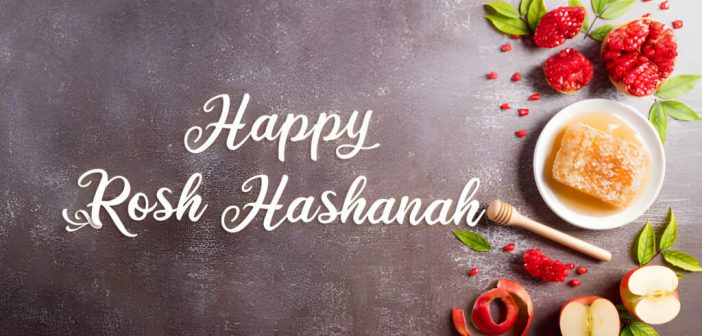Wishing the Jewish Community in India a Blessed Rosh Hashanah
To all the Jewish families in India, Shanah Tovah Umetukah! May the year 5785 bring peace, prosperity, and health. As you gather with loved ones and follow the sacred traditions of your faith, may this Rosh Hashanah be filled with joy, reflection, and the hope of a fruitful new year.
Let this year be a year of new beginnings and unity, as Indian Jews contribute to the rich tapestry of India’s diverse religious landscape.
Rosh Hashanah, the Jewish New Year, is one of the most significant and widely celebrated holidays in the Jewish calendar. Known as the “Head of the Year,” it marks the beginning of the Hebrew month of Tishrei, which typically falls in September or early October. The festival spans two days and is celebrated not just in Israel but by Jewish communities worldwide, including India.
Origins and Significance
Rosh Hashanah has deep roots in Jewish religious texts, dating back to biblical times. It commemorates the creation of the world and marks the beginning of the “Days of Awe,” a 10-day period of reflection, repentance, and renewal, culminating in Yom Kippur, the Day of Atonement.
The primary theme of Rosh Hashanah is renewal—both spiritual and communal. It is believed that on this day, God reviews the deeds of the past year and judges individuals and nations, inscribing them in the “Book of Life” for the coming year.
Traditions and Observances
- Blowing of the Shofar: One of the most iconic traditions of Rosh Hashanah is the blowing of the shofar, a ram’s horn, which symbolizes a spiritual wake-up call. The blasts of the shofar call on individuals to reflect on their past actions, seek forgiveness, and renew their faith.
- Prayers and Services: Synagogue services during Rosh Hashanah are lengthy and include special prayers and readings, particularly from the Machzor, the prayer book used for the High Holidays. The Unetaneh Tokef prayer, which contemplates the themes of life and death, is recited with great reverence.
- Tashlich Ceremony: Many Jews observe Tashlich, a symbolic practice where they go to a body of flowing water and cast pieces of bread or other food into it, symbolizing the casting off of sins.
- Festive Meals: Rosh Hashanah is celebrated with family gatherings and festive meals, often featuring foods symbolizing wishes for the coming year. Key dishes include apples dipped in honey (symbolizing sweetness and hope for a good year), round challah bread (representing the cycle of the year), and pomegranates (said to have 613 seeds, corresponding to the 613 mitzvot or commandments in the Torah).
Celebrations in India
India, home to a small but vibrant Jewish community, celebrates Rosh Hashanah with unique regional customs. In cities like Mumbai, Kochi, and Pune, where most Indian Jews reside, the Bene Israel, Baghdadi, and Cochin Jews observe the holiday with traditional prayers, festive meals, and the blowing of the shofar. The synagogues in these cities, such as the Magen David Synagogue in Mumbai and the Paradesi Synagogue in Kochi, come alive with prayer services and community gatherings.
Indian Jews follow similar customs to their global counterparts, but with some localized flavors. For instance, Jewish cuisine in India incorporates regional spices and flavors, blending traditional Jewish dishes with Indian culinary techniques.
Global Celebrations
Around the world, Rosh Hashanah is celebrated in diverse ways:
- In Israel, the entire nation comes to a halt for the two-day celebration, with people attending synagogue services and family meals. Streets are quieter, and there is a palpable sense of reflection and renewal.
- In the United States, where there is a large Jewish diaspora, Rosh Hashanah is a major holiday marked by synagogue services and community events. Many Jewish families also take part in volunteer activities, aligning with the holiday’s theme of self-improvement and social responsibility.
- In Europe, Jewish communities gather for large communal meals and services. Some traditions, such as the Eastern European custom of eating fish heads (symbolizing the wish to “be a head, not a tail” in the coming year), are still observed.
- In South America and Australia, Jewish communities come together to celebrate with traditional foods and religious services. The holiday is also a time for outreach, with many synagogues organizing events for non-practicing or unaffiliated Jews.
The Spirit of Rosh Hashanah in 2024
In 2024, as Rosh Hashanah is celebrated from October 2 to 4, the global Jewish community embraces both tradition and modernity. Many services are streamed online, allowing Jews from across the world to connect virtually and participate in the holiday, especially in areas with smaller communities or those facing challenges due to travel or health restrictions.
Despite the differences in regional customs and practices, the essence of Rosh Hashanah remains the same—a time for introspection, spiritual renewal, and the hope for a better future. It is a time for both individuals and communities to reflect on their actions, seek forgiveness, and make resolutions for the coming year.






